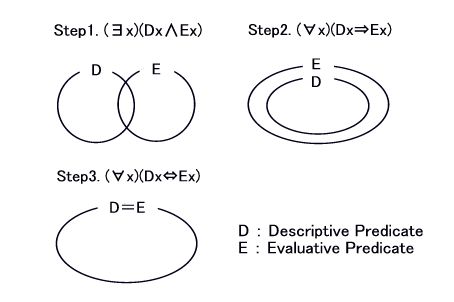Who Is the Victim of Authoritarianism?
People, especially Japanese, are subject to authority. What is wrong with it? Who suffers authoritarianism?

1. Brands are necessary
Authoritarianism is usually criticized. In fact, most people think they should judge things or persons not by their appearance but by their essence.
However, it is impossible to evaluate everything without prejudice. For example, when you buy a computer and have no expert knowledge about it, you will probably depend on the brand of the famous maker in choosing which to buy.
Brands sometimes betray us, but denying the credibility of all brands results in denying the society. Brands are useful when you have no discernment about and no time to study the quality.
If a brand betrays you, you will no longer believe it. This is a normal case. But some think more of a brand than quality. This is the authoritarian case.
2. Putting the cart before the horse
The reversal of value and criteria characterized authoritarianism. To understand the reversal, let’s analyze the logical structure of authoritarianism. The following three stages show how the brand loyalty is advanced from the normal usage of brand to the fanatic authoritarianism.
Step1. Most of novels written by novelists who won the Nobel Prize are worth reading.
Step2. All novels written by novelists who won the Nobel Prize are worth reading.
Step3. A novel is worth reading, if and only if a novelist who won the Nobel Prize wrote it.

These Venn diagrams can visualize the logical structures of these three cases. Here D stands for the descriptive predicate “novels written by novelists who won the Nobel Prize" and E stands for the evaluative predicate “worth reading".
D and E on the second step are reversible.
Step1. This is a normal case, where the possibility of “Some of novels written by novelists who won the Nobel Prize are not worth reading" and “Some of novels written by novelists who did not win the Nobel Prize are worth reading" still remains.
Step2. If you happen to find no cheap novels written by novelists who won the Nobel Prize, you will believe that all novels written by novelists who won the Nobel Prize are worth reading.
Step3. When your belief in Nobel Prize gets fanatic, you will think not only that all novels written by novelists who won the Nobel Prize are worth reading, but also that no novels written by novelists who did not win the Nobel Prize are not worth reading. For such authoritarian, novelists mean Nobelists. Though a brand is originally just a mean to judge the value, the brand hereby takes the place of value. This is what G.E. Moore named “The naturalistic Fallacy"
Generally speaking, those who do not understand contents adhere to form. In another word, those who always make use of brands as criteria are men of no contents. It is no problem that the amateur without discernment about and time to study the quality is dependent on brands. But it is problematic with discernment about and time to study the quality is always dependent on brands.
3. The victims are authoritarians themselves
It is apparent that the authoritarian who believes in not brands because of value but value because of brands puts the cart before the horse. Who is it that must suffer from authoritarianism, then? Is it those who are excluded by authoritarianism? No.
Suppose a company employs no applicants except those from the Ivy League. Those from the other colleges might be dissatisfied with this authoritarianism, but they are not the victims of authoritarianism. They can select sounder companies that have no authoritarian prejudice. The victim of the authoritarianism is the company itself that cannot employ the right man.
Evaluation is not an altruistic act to please another, but an egoistic act to survive better. Authoritarians that are blind with brands and fail to select the right alternative doom to suffer damage.
Authoritarians are unhappy persons, because they may eat bad meals on splendid plates and, what is more, they even don’t know that they are unhappy, thinking they are eating the best meal. The feeling we have toward authoritarians must be not anger but pity.








Discussion
New Comments
No comments yet. Be the first one!